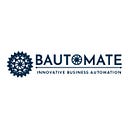Automation Helps Mitigate Inflation Risks in Your Procurement Process
Inflation is a sustained increase in the price of goods and raw materials over time. It affects the purchasing power of individual owners and businesses, which in turn affects the procurement process and lowers the profit margins.
Indeed, the US Manufacturing Purchasing Managers’ Index(PMI) rose to a record high of 64.7% indicating an increase in prices of raw materials and finished goods. By understanding how inflation can affect the procurement process, businesses can make better decisions regarding their buying decisions and budgeting processes.
Investing in digital technologies across procurement functions helps firms hedge against inflationary pressures. This article aims to provide an overview of how inflation affects the procurement process, and why businesses need to implement automation to minimize its impact.
What are the Inflation-Led Risks of Procurement and How Does Automation Help?
According to a recent Deloitte report, 75% of CFOs are concerned about inflation, and many are looking for solutions to combat the risks associated with inflationary situations. To battle price increases, procurement teams are well-positioned to utilize supplier relationships and proactively source opportunities. Inflation, according to McKinsey, is a unique chance for procurement to lead.
Fortunately, Bautomate provides a solution to this situation by providing an efficient and cost-effective way to streamline the procurement process. Automation helps businesses mitigate inflation-led risks through improved accuracy, faster response times, and better control over inventory levels.
How Automation Reduces the Potential Inflationary Risks to Enhance Your Procurement Process
Inflation procurement risks can be extremely costly if not managed properly. Using automation to mitigate the risks associated with inflation can help businesses save money and stay competitive in the marketplace.
Automation solutions can be used to track prices, forecast future costs, and compare pricing for purchasing items across multiple vendors. Helps businesses to set up automated alerts when prices reach a certain level or when market conditions change.
Automated systems can provide invaluable protection against inflation-related procurement risks while making it easier to make smarter purchasing decisions in the below ways,
Spend Analysis: With automation, procurement teams can analyze spending data to identify cost-saving opportunities. The primary solution is reducing the time and cost of manual labor. Automating the manual procurement processes such as purchase order creation, invoice processing, etc., the associated time and cost can be reduced thereby freeing up resources for more strategic work.
Contract Management: Contracts are managed more effectively by tracking important dates, monitoring performance, and enforcing compliance making it easier for the procurement teams to mitigate risks and ensure that suppliers meet their obligations.
Purchase Order Management: The processing of purchase orders is managed more efficiently by automating the PO approval process, monitoring delivery dates, and tracking supplier performance. This can help reduce the risk of supply chain disruptions and ensure that goods and services are delivered on time.
Inventory Management: Procurement teams can optimize inventory management by automating the replenishment process, tracking inventory levels, and analyzing usage patterns. This helps to reduce the risk of shortages and excess inventory, which can lead to higher costs.
Supplier Performance Management: Automated supplier management systems can provide real-time data on supplier performance, quality, and delivery times. This data can be used to identify potential supply chain disruptions and proactively address them. Say, if a supplier is consistently delivering goods late, companies can use this data to find alternative suppliers or renegotiate their contract with the existing supplier, thereby reducing the impact of inflation on procurement and ensuring that companies have a reliable and efficient supply chain.
By automating the procurement process, companies can ensure that their supply chain operations are free of inflated costs and are able to remain competitive in an ever-changing market. When a company invests in automation, it can see up to a 40% increase in returns over the next two years.
Bautomate strives to save costs by reducing the amount of time spent on onboarding suppliers, evaluating supplier performance, and managing day-to-day operational concerns. Connect with our experts to explore how our procure-to-pay automation solution can help combat inflation-led risks in your procurement process.
